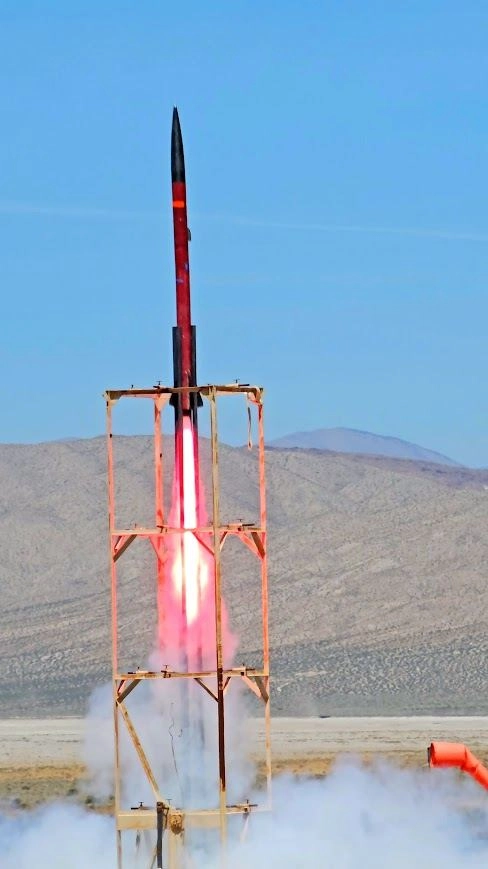Gladius II Competition Launch
Throughout my freshman and sophomore years, MARC’s Structures, Avionics, and Recovery competition subteams gradually created various subsystems for Gladius II, from its fore, mid, and aft airframes, to its flight computer and avionics bay, to its parachutes and experimental payload. Last spring, we put them all together as Structures finished assembling the rocket airframes, in preparation for the FAR-51025UNL national competition. Early in the summer, members from each team met up to make finishing touches and then drive over to the Friends of Amateur Rocketry launch site near California City. It was a three-day affair, since there were teams from universities across the country, and each launch took a couple hours to set up. Soon enough, MARC set up Gladius II on the launch pad. Two years of preparation culminated in this moment.

Unfortunately, as you may get glimpses of in the video, during ascent the rocket was critically damaged and its trajectory skewed. As some of us walked back from where the rocket landed, and saw that our fins had ripped cleanly out of the aft airframe, we realized immediately that this was the cause of the corkscrewing that Gladius II experienced in flight. In short, the fins were not epoxied as securely as they should have been, and since this prevented the rocket from undergoing its anticipated trajectory, unfortunately we can only guess how other subsystems would have fared during a successful launch.


Despite this setback, all-in-all it was a great learning experience and overall adventure. Along with lessons learned from the launch of Gladius I two years prior, this has informed our dramatic structural redesigns. Bonding with my team on the road and over dinner, hanging out in a Best Western Inn, scrambling to pack the rocket motor casing during launch setup, and even performing forensics post-launch to figure out what went wrong, simply made the launch trip a fun time.





